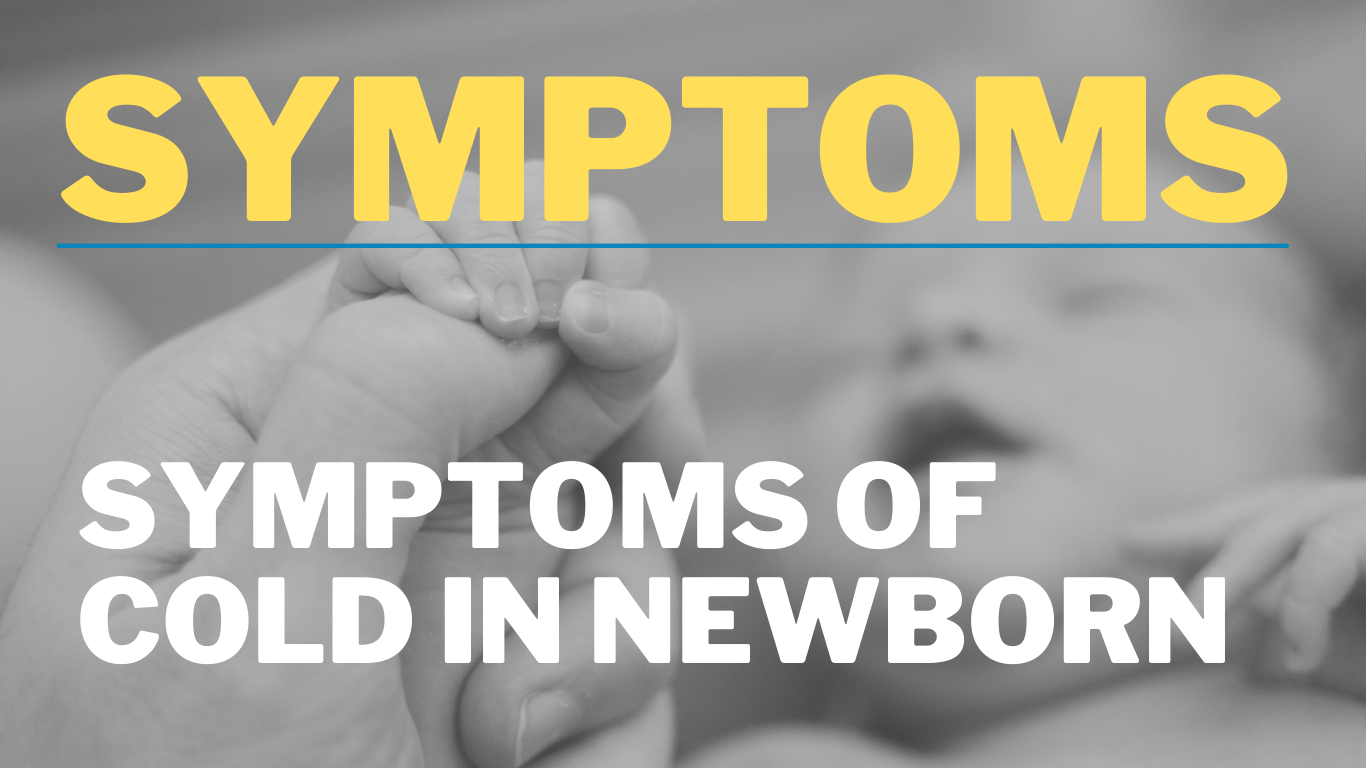Symptoms of Cold in Newborn, Learn how to identify and treat these symptoms while ensuring your little one’s comfort and well-being.
Introduction Symptoms of Cold in Newborn
cold symptoms in newborns: The soft coos, tiny fingers, and warm cuddles of a newborn can melt anyone’s heart. However, with these precious bundles of joy comes a responsibility to ensure their health and well-being. One common concern for parents is understanding and managing cold symptoms in newborns. This thorough tutorial will cover the nuances of diagnosing and treating neonates with cold symptoms while adhering to Google’s E-A-T (Expertise, Authority, Transparency) standards. So buckle up because we’re about to go on a trip filled with sneezes and sniffles with a dash of fun.
What is a Cold in a Newborn?(Symptoms of Cold in Newborn)
Defining the Common Cold
Before discussing the symptoms, it’s critical to comprehend what a common cold is, especially in the case of a young child who may be more susceptible. The most prevalent causes of the common cold, often known as a viral upper respiratory disease, are rhinoviruses. These tiny troublemakers invade the respiratory tract, leading to a range of symptoms.
Identifying Symptoms of Cold in Newborn
Signs a Newborn is Sick: A Comprehensive Guide
Does My Child Have Mental Health Issues
1. Nasal Congestion: Sniffles and Snuffles
Ah, the unmistakable sound of a congested nose – it’s like a tiny trumpet announcing the cold’s arrival. Newborns often struggle to breathe through blocked nasal passages, making it challenging for them to nurse and sleep peacefully.
Pro Tip: Elevate your baby’s head slightly during sleep to ease breathing.
2. Sneezing: The Miniature Blessings
Newborns are experts at sneezing, and during a cold, they’ll demonstrate their skills abundantly. Sneezing helps clear out the irritants from their tiny nasal passages.
Pro Tip: Ensure a clean and safe environment to reduce allergens.
3. Coughing: The Tiny Hack
While newborns’ coughs are more like soft, intermittent hacks, they can still be distressing. It’s their way of trying to clear mucus from their throat.
Pro Tip: Use a humidifier to keep the air moist and ease coughing.
4. Fever: The Little Thermometer Drama
Infants’ fevers should never be ignored. The moment your baby’s temperature exceeds 100.4°F (38°C), you must seek emergency medical attention.
Pro Tip: Dress your baby in lightweight clothing and keep the room comfortably cool.
5. Irritability: The Fussy Symphony
A cranky baby during a cold is par for the course. The discomfort from congestion, coughing, and sneezing can leave them irritable and fussy.
Pro Tip: Provide extra comfort with gentle cuddles and soothing lullabies.
6. Loss of Appetite: The Mini Food Critic
Cold symptoms can put a damper on your baby’s appetite. Don’t be alarmed if they eat less during this time; their little tummies need time to recover.
Pro Tip: Offer smaller, more frequent feedings.
7. Watery Eyes: The Liquid Gaze
You might notice your baby’s eyes watering more than usual during a cold. This is a natural response to the irritation caused by mucus buildup.
Pro Tip: Gently wipe away excess moisture with a clean, soft cloth.
Treating a Symptoms of Cold in Newborn
NURTURING MENTAL WELLNESS IN CHILDREN: STRATEGIES FOR KIDS EMOTIONAL HEALTH
1. Hydration: Sip by Sip
Keeping your baby well-hydrated is crucial during a cold. Ensure they feed regularly and offer extra fluids if you’re breastfeeding.
Pro Tip: For formula-fed babies, consult your pediatrician about diluting formula with water to prevent dehydration.
2. Saline Drops: The Nasal Heroes
Saline nasal drops can work wonders in clearing your baby’s nasal passages. A few drops before feeding can help them breathe more comfortably.
Pro Tip: Use a bulb syringe to gently suction mucus after applying saline drops.
3. Elevating the Head: The Pillow Trick
As mentioned earlier, elevating your baby’s head slightly while they sleep can promote better breathing.
Pro Tip: Never use pillows or soft bedding; opt for a firm, flat sleep surface.
4. Humidifier: The Moisture Machine
Adding a humidifier to your baby’s room can help maintain the right level of moisture, reducing congestion and coughing.
Pro Tip: Clean the humidifier regularly to prevent mold and bacteria growth.
5. Steamy Bathroom: The Mini Sauna
Create a mini-sauna by running a hot shower in the bathroom with the door closed. Sit in the steamy room with your baby for a while to relieve congestion.
Pro Tip: Ensure the room is safe, and never leave your baby unattended.
When to Seek Medical Attention for Symptoms of Cold in Newborn
High temperature: A newborn who has a temperature over 100.4°F (38°C) needs to be seen by a doctor as away.
Breathing Problems: If your infant has breathing problems or displays other indicators of respiratory distress, you should seek emergency medical attention.
Less moist diapers, a dry mouth, and sunken soft areas on the baby’s head are all indications of dehydration.
Conclusion About Symptoms of Cold in Newborn
Symptoms of Cold in Newborn: In the journey of parenthood, understanding and managing a cold in a newborn is just one of the many chapters. Keeping in mind that a newborn’s immune system is still growing, they should be cautious around viruses. Your child can get through those sniffles and sneezes with a little support from you—just little patience, tenderness, and humor.
FAQs
Q1: Can I use over-the-counter cold remedies for my newborn if i see Symptoms of Cold in Newborn
A1: It’s best to avoid over-the-counter cold remedies for newborns, as they can have adverse effects. Consult your pediatrician for safe and appropriate options.
Q2: How long does a cold typically last in newborns?
A2: Cold symptoms in newborns usually last for about 7 to 10 days. If they persist or worsen, seek medical advice.
Q3: Can I still breastfeed when they have a Symptoms of Cold in Newborn?
A3: Yes, you can and should continue to breastfeed your baby when they have a cold. Breast milk provides essential nutrients and antibodies to help them recover faster.





